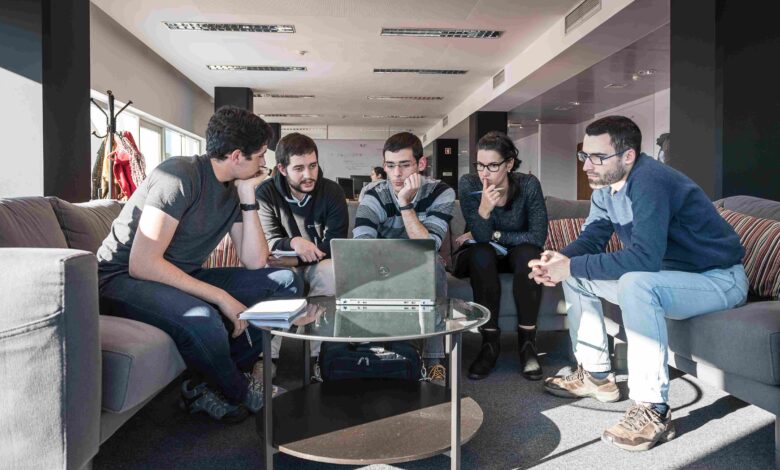
The role of software developers is in the thick of disruption with the rise of generative AI. It isn’t clear how the developer’s role will change in the future and this opens up many questions around what it could look like. From questions around whether AI specialists will be required or how existing developers will up-skill to keep up with evolving technology. It’s all on the table and being questioned.
Currently, almost two-thirds of developers already use generative AI-based coding solutions in their daily work, and this is just the beginning. Gartner predicts that by 2028, 75% of enterprise software designers will have adopted these AI coding assistants, compared to less than 10% at the beginning of 2023.
Undoubtedly, generative AI tools present companies with a variety of technical advantages. With AI integration into the software development life cycle (SDLC), software delivery is accelerated and provides companies with a competitive advantage. Generative capabilities also extend to predictive modelling through data-driven predictions on the next steps in logic flows, as well as identifying potential application issues, and anticipating user behaviour and market trends.
While generative AI tools are valued for their task automation functionalities and ability to boost productivity, they can also introduce time-consuming manual tasks at certain stages of the SDLC, such as technical debt and orphaned code. This raises questions about the impact of AI on developers’ roles. Although AI doesn’t replace humans, it could become a powerful ally. To make this collaboration work, developers should consider the specific skills they should acquire to remain relevant in the AI era – and failing to invest in the technical skills of their teams could leave companies behind.
Mastering AI-related qualifications such as prompt engineering, vector databases, or low-code platforms is crucial to staying competitive in a rapidly transforming market. However, these skills alone are not enough; good use of technology also requires developers to pay attention to their human soft skills.
Developing skills in the AI era
Understanding the technical areas that build the foundations of generative AI is a crucial skill for developers, and more importantly, mastering these skills will allow developers to uphold a competitive edge. However, when companies look to develop skills, encouraging developers to take part in interactive initiatives can help. For example, a “Prompt-a-thon” can be advantageous to become more efficient in crafting prompts for AI. Prompt engineering has become a strategic skill that enables developers to extract the desired outcomes from AI models while reducing the risk of errors.
Gaining expertise on how generative AI models use data to identify patterns and make predictions to produce responses is also crucial. The emergence of autonomous AI agents necessitates that developers acquire new skills to bridge the gap between traditional algorithmic programming and these intelligent systems. Collaborating effectively with autonomous agents is crucial to ensure they operate efficiently and ethically throughout the SDLC.
Additionally, managing vector databases that are widely used in search and recommendation engines is just as important for integrating these technologies into AI applications. Similarly, techniques like retrieval-augmented generation (RAG), which improves AI model results by providing personalised data to upgrade the accuracy and detail in responses, are also key. Lastly, mastering low-code to develop faster and more flexible application development allows developers to focus on higher-level problem-solving and innovation.
To truly excel, developers must also capitalise on their human soft skills and continue to hone them. A solid understanding of the business allows them to align AI solutions with strategic objectives and add real value. Problem-solving is essential in a field where iteration is frequent, helping to address challenges such as algorithmic biases or ethical questions. Creative thinking, in turn, opens the door to unexpected use cases. Finally, the ability to learn and assess risks is crucial to keep pace with rapid technological advances and ensure responsible AI use.
Ultimately, AI will not replace developers, but those who master both technical and behavioural skills will stand out. They will be able to leverage AI while highlighting human qualities that technology will never replicate.
AI: the twofold investment
It is essential for employers to actively invest in the skill development of their developers, an effort that directly benefits the company. By offering opportunities to acquire new skills and refine expertise, leaders boost innovation, maximise productivity, and create an environment where employees feel valued and engaged. In a sector where talent is scarce, these actions are crucial.
With the ongoing talent shortage, recruiting and retaining developers is becoming an increasingly complex challenge. In fact, Manpower’s “2024 Global Talent Shortage Survey” revealed that most (76%) IT sector employers struggle to find the qualified profiles they need, and this shortage is particularly acute in the software industry.
The talent shortage will not be resolved overnight. That’s why, beyond enhancing developers’ skills, companies must consider training or reskilling their current or future employees, even those without traditional IT skills. If companies haven’t already, investing in generative AI tools is essential. The advantages are too significant to ignore, including higher productivity, shorter delivery times, and reduced operating costs.
That said, AI-powered coding tools won’t replace human developers. Companies should see AI as a dual investment: in technology, of course, but especially in their teams. IT leaders who neglect one of these aspects risk falling behind their competitors. The future of generative AI is still under construction, but one thing is certain: preparing now is vital.




